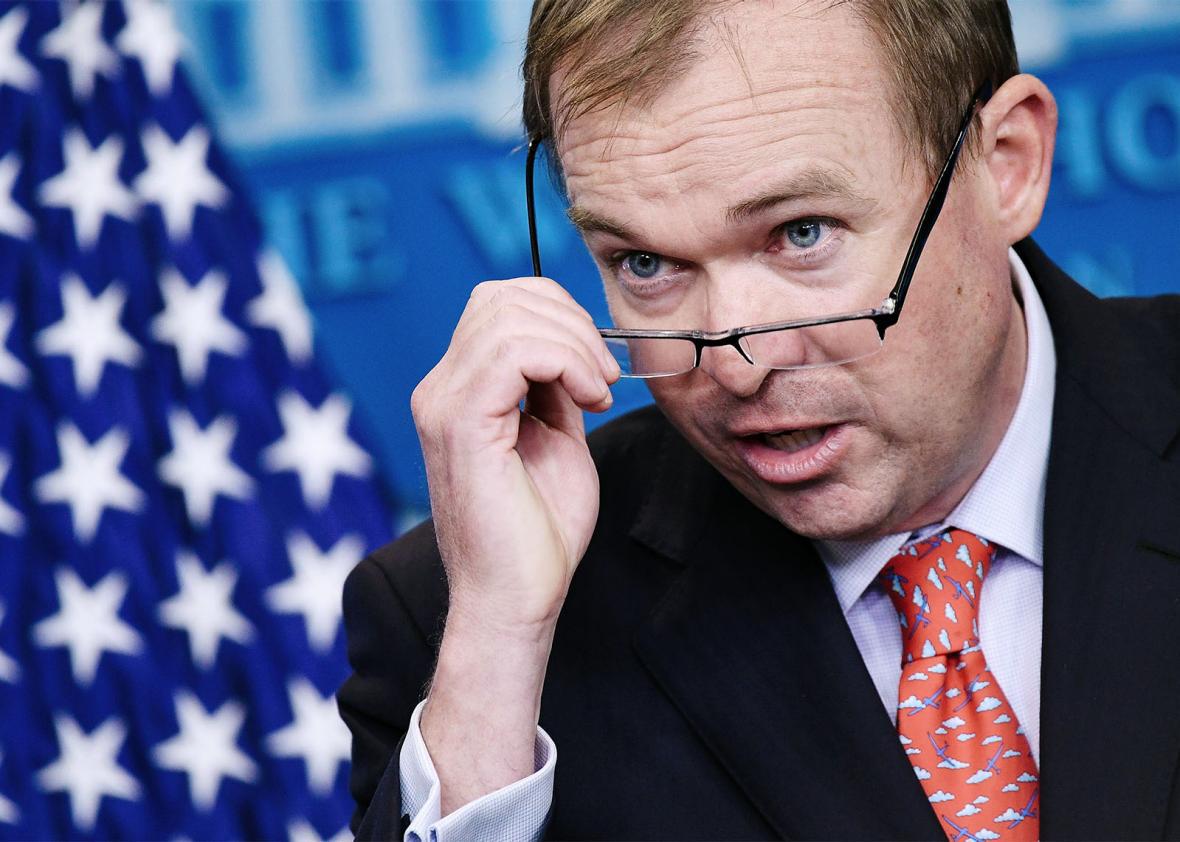How do you sell a health care bill that cuts insurance for the poor, allows states to waive “essential health benefits” like maternity care, and allows insurers to charge impossible sums to people with pre-existing conditions, all to cut taxes for the richest 2 percent of Americans?
You lie about it.
On Sunday, Republican leaders and White House officials took to news shows to promote the American Health Care Act, their bill to “repeal and replace” Obamacare (née the Affordable Care Act). Roundly condemned by health policy experts, industry stakeholders, and even conservative observers, the AHCA is a Frankenstein’s monster of ideas and provisions stitched together in a rushed effort to pass a bill. “Trumpcare” restores the worst of the pre-Obamacare status quo, exacerbating problems in the American health care system instead of solving them.
An honest pitch for this bill, which passed in the House of Representatives on Thursday, would admit that it’s tough medicine. In this hypothetical, Republicans would own and defend their actual position: that health care is an individual concern, and universal coverage lies outside the government’s power and authority. But that view is unpopular; majorities of Americans believe just the opposite, and the sitting Republican president campaigned on the promise that his health law would cover everyone at lower costs with better plans.
Rather than acknowledge that their proposal does nothing of the sort, Republican leaders have opted to talk up the virtues of a plan that looks nothing like the one they just voted for. The American Health Care Act cuts $880 billion from Medicaid over a 10-year period. The Congressional Budget Office estimates that as a result, 14 million fewer people would have Medicaid coverage by 2026. On CNN’s State of the Union, host Jake Tapper pressed Health and Human Services Secretary Tom Price for answers on these cuts. Price, unfazed, denied that the cuts even existed. “Remember that there are no cuts to the Medicaid program. There are increases in spending,” said the secretary. When an incredulous Tapper pressed again—“Are you actually saying that $880 billion in cuts … is actually not going to result in millions of Americans not getting Medicaid?”—Price went further, insisting that “the Medicaid population will be cared for in a better way.”
In reality, Trumpcare does the literal opposite of what Price claims. The AHCA doesn’t just cut from Medicaid. It turns the remaining funding into a block grant and frees states from federal requirements. This would allow states to cut benefits to children and adults, charge unlimited premiums, deductibles, and co-payments, and deny coverage to eligible individuals.
As misleading as Price was, the elisions and misstatements in his interview paled next to Paul Ryan’s brazen performance on ABC’s This Week. The House speaker started with a falsehood—“Obamacare is collapsing”—and powered on from there, telling George Stephanopuolos that under the AHCA “you cannot be denied coverage if you have a pre-existing condition” and “you can’t charge people more if they keep continuous coverage.” Both claims are technically true, but Ryan leaves out critical information.
Under the AHCA, states can obtain waivers for the Affordable Care Act’s requirement that insurers must both accept people with pre-existing conditions and charge them the same as healthy people of the same age. Someone who has a pre-existing condition could see their premiums skyrocket if she lives in a state that takes that waiver. If that person were to drop their insurance as a result, she would lose the protections that come with continuous coverage. And while Ryan says the bill provides for “high-risk pools” to cover those with conditions that make them uninsurable in the normal individual market, the funds at hand are paltry and inadequate to meet the likely demand. Ryan insists that his bill ensures “access” to health care, but access means little when insurance is unaffordable.
Ryan and Price weren’t the only Republicans making the rounds. On CBS’ Face the Nation, Office of Management and Budget Director Mick Mulvaney sat with host John Dickerson to defend the health bill. When pressed on the Congressional Budget Office’s score for an earlier iteration of the ball, which said Trumpcare would drop coverage for 24 million people by 2026 (an updated score is expected to be released this week), Mulvaney attempted to pooh-pooh the office itself. “They missed the mark a couple of years ago on how many people would sign up. And I think they have missed the mark again on how many people will lose coverage.” This, again, isn’t true. The CBO’s projection for coverage under the Affordable Care Act was close to the mark, overestimating how many people would get covered by the exchanges but underestimating how many would gain coverage under Medicaid.
Regardless, Mulvaney refused to address the question of lost coverage. When pressed with comments from conservative critics of the bill, who argue that it prices older Americans out of the market, breaking a key promise from the president, the OMB director went off the rails, essentially saying that the plan wasn’t finished so who knows what will happen. “But face it, we are all sort of guessing right now because the negotiation is ongoing. … The negotiations will continue again, so I think it is important we reserve judgment on what the president will or won’t sign until we know what is in front of him.” And when asked about President Trump’s promise to cover “everyone in the nation,” something even Obamacare couldn’t accomplish, Mulvaney retreated to this notion of “access,” promising to give people “the care that they want, the quality that they need, the affordability they deserve.”
It’s simple: You can’t square the rhetoric of Republican leaders and officials with the bill they crafted and passed. They’ve either made promises they can’t keep, or they’re lying, full stop. This works well enough as a PR strategy, but Republicans should remember that there is a reality, and it matters.
